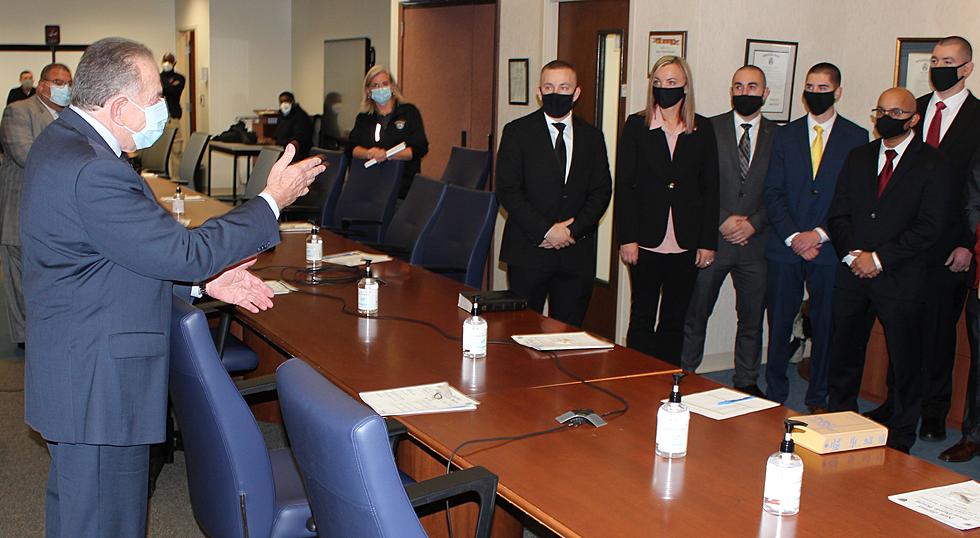
NJ needs parole officers — how to apply, and what it takes
There's a greater need for folks to fill a lot of positions in New Jersey right now, and that includes parole officers, to watch over and guide individuals who've been released from incarceration.
Those interested in assisting with the rehabilitation of offenders, in a law enforcement capacity, have until 4 p.m. on Feb. 28 to get an application in for a job as a parole officer recruit in the Garden State.
"We pride ourselves in having one of the lowest recidivism rates in the United States," Samuel Plumeri, chairman of the New Jersey State Parole Board, told New Jersey 101.5. "That's a result of the fine work that our officers do."
Plumeri said the need for parole officers is greater in 2022, given a higher number of parolees in their charge — the COVID-19 threat prompted New Jersey to offer early release to prisoners starting in 2020, and the Earn Your Way Out Act that took effect in 2021 launched an effort that grants credits to inmates toward an earlier parole date.
The agency also is regularly filling positions left vacant by officers who retire.
The Parole Board is seeking applicants for parole officer recruit and bilingual parole officer recruit. The starting salary is around $57,000.
Application:
What does it take?
Eligible candidates must be at least 18 years old and live in New Jersey. And, unlike other law enforcement jobs, the position requires someone who's graduated from an accredited college or university with a bachelor's degree.
Once an individual passes the civil service exam and their background checks out, they start a one-year recruit period that includes a 20-week academy course in Sea Girt, Plumeri said. That program includes classes in arrest procedures, investigation techniques, parolee supervision, unarmed defensive tactics, and firearms training.
This isn't just a law enforcement position; there's a social-work aspect as well, Plumeri said. Those who advance from the academy receive in-the-field training and become familiar with programs that will help offenders re-assimilate into society, including housing assistance and addiction counseling.
Recruits arrest parole violators when necessary, and coordinate the collection of fines, the Parole Board said. After a probationary period, a recruit would advance into the job of senior parole officer.
Contact reporter Dino Flammia at dino.flammia@townsquaremedia.com.
Update: NJ arrests in Jan. 6 U.S. Capitol riot
New Jersey's smallest towns by population
More From New Jersey 101.5 FM









